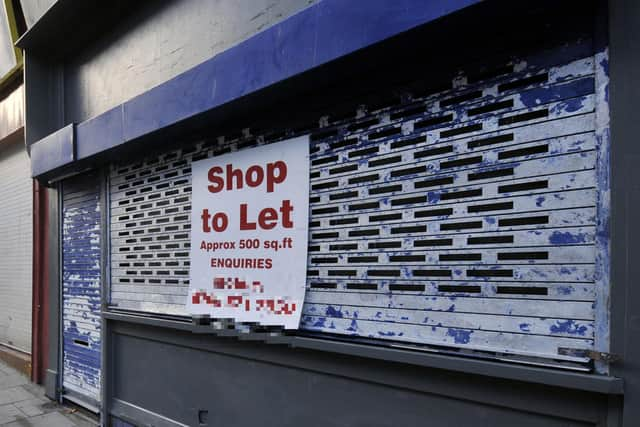Empty business premises in Scarborough have cost almost £3.5 million over five years
and live on Freeview channel 276
Over the past five years, almost £3.5m of potential business rate income has been lost in the borough due to an exemption for empty premises, new research by the BBC Shared Investigations Unit has found.
Business rates are a tax on non-domestic properties like shops, warehouses and pubs based on a property’s ‘rateable’ value, linked to rental value.
Advertisement
Hide AdAdvertisement
Hide AdUnder current law, business premises which become empty cannot be taxed under the business rates system for at least three months.


In 2018-19, landlords in Scarborough were exempt from paying £786,587 under this scheme, 1.59 per cent of the potential total rates income in the area.
However, that money would not have all been collected by Scarborough Council as current legislation means only half of business rates income is retained by local authorities with the rest redistributed by central government.
Rates are a controversial topic and retailers have been lobbying for them to be lessened to help Britain’s ailing high streets, while councils are increasingly relying on the income as central government grants are reduced.
Advertisement
Hide AdAdvertisement
Hide AdExperts warn that business rates will be ‘critical’ to the stability of local authority finances in future.
Dr Kevin Muldoon-Smith, from Northumbria University, said: “Business rates, along with council tax, will be very critical to the stability of local authority finances going forward because of central government grants being reduced.
“Unfortunately, we have this perverse situation where local government needs tax to go up and the business community are lobbying very hard for it to go down.
“But if you look at the property market, the relationship between business and bricks and mortar is changing. There’s a good chance that pool of income will start to reduce – at the very least it will be different.”
Advertisement
Hide AdAdvertisement
Hide AdSpeaking on behalf of the retailers, Dominic Curran, Property Advisor at the British Retail Consortium, said: “It has been a challenging year for many retailers, as many shops struggle to adapt to rising cost pressures and changing consumer habits.
“High among the concerns for retail firms is business rates – a tax which disproportionately harms retailers, driving shop closures and job losses, leaving empty shopfronts and harming local communities.
“It is essential that the Government makes good on its pledge to reform this broken tax system.”
A HM Treasury spokesperson said: “Empty property relief strikes a balance between incentivising property owners to put vacant properties to use, while not penalising those who lose a tenant at short notice.
Advertisement
Hide AdAdvertisement
Hide Ad“Whilst the rate of business rates collection varies between individual authorities, the local government finance system has been designed so that business rates income is redistributed across the country according to the needs of local areas.
“We will announce further details of the business rates review in due course.”